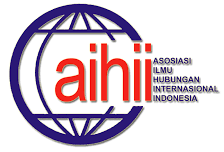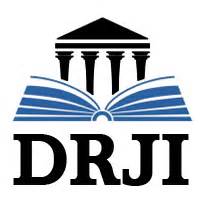Peran Lembaga Pengkajian Pangan, Obat-obatan, dan Kosmetika Majelis Ulama Indonesia (LPPOM MUI) sebagai Nonstate Actor dalam Perkembangan Industri Halal di ASEAN
Abstrak
Artikel ini membahas peran LPPOM MUI sebagai nonstate actors dalam usaha perkembangan industri halal di ASEAN. Peran nonstate actors tersebut akan dianalisis melalui elemen-elemen yang diuraikan oleh Hilary French dalam modelnya, yaitu: information brokering, influencing, monitoring, dan representing. Isu ini diteliti karena industri halal dinilai sebagai salah satu faktor penggerak ekonomi ASEAN, mengingat wilayah ini memiliki keunggulan dari total populasi 25% umat Muslim seluruh dunia dan memiliki dua negara (Indonesia dan Malaysia) yang terdepan dalam sertifikasi halalnya. Dalam perkembangan industri halal ASEAN, telah ditemukan tantangan dalam usaha harmonisasi standar halal karena kurangnya sinergisitas antaraktor di wilayah tersebut. Melalui metode penelitian kualitatif ditemukan bahwa peran LPPOM MUI sebagai nonstate actor dalam perkembangan industri halal ASEAN masih minim, terutama setelah berlakunya Undang-undang Jaminan Produk Halal (UU JPH) di Indonesia. Artikel ini menemukan bahwa masih ada gap partisipasi di antara nonstate actor dengan aktor-aktor lainnya di ASEAN. Maka, direkomendasikan pelibatan nonstate actors dalam negosiasi isu halal yang berlangsung dalam skala ASEAN dan memperjelas peran mereka dalam standar halal ataupun persetujuan yang nantinya akan berlaku di antara negara anggota ASEAN agar integrasi industri halal regional di kawasan Asia Tenggara terpenuhi.
This article discusses the role of LPPOM MUI as a nonstate actor in efforts to develop the halal industry in ASEAN. The role of nonstate actors will be analyzed through the elements as described by Hilary French in her model, namely: information brokering, influencing, monitoring, and representing. Halal industry is considered to be one of the driving factors for the ASEAN economy, considering this region has the advantage of a total population of 25% of Muslims throughout the world. ASEAN has two countries (Indonesia and Malaysia) that are leading in terms of halal certification. Challenges have been found in efforts to harmonize halal standards in ASEAN since there is lack of synergy between actors in the region. Through qualitative methods, the author found that the role of LPPOM MUI as nonstate actor is still minimal, especially after the enactment of the JPH Law in Indonesia. This article finds that there is still a participation gap between nonstate actors and other actors in ASEAN. Therefore, the author recommends involving nonstate actors in negotiations on halal issues and clarifying their role in halal standards or agreements that will later apply among ASEAN member countries, in order to fulfill the dream of a more integrative regional halal industry.
Kata Kunci
Teks Lengkap:
PDFReferensi
Abimanyu, A., & Faiz, I. A. (2023). ASEAN Halal Markets Analysis: Regulatory and Harmonization Challenges. Global Review of Islamic Economics and Business, 11(1), 025–044. https://doi.org/10.14421/grieb.2023.111-02
ASEAN. (n.d.). ASEAN Economic Community Blueprint 2025. https://asean.org/book/asean-economic-community-blueprint-2025/
Athief, F. H. N., Darlin, R., Prabowo, A. A., & Aziz, M. A. (2022). ANALISA OTORITAS LPPOM MUI PASCA DIBERLAKUKANNYA UU 33/2014 TENTANG JAMINAN PRODUK HALAL: LEGALITAS, WEWENANG DAN KEUANGAN. IJTIHAD, 16(1).
Aziza, N., Prasnowo, M. A., & Khoirul Hidayat. (2020). Halal Tourism, Cerfication Regulation, and Research Institute Insigh From IMT-GT Countries: A Review. International Journal of Science, Technology & Management, 1(3), 265–272. https://doi.org/10.46729/ijstm.v1i3.52
Barnett, M. N., & Finnemore, M. (1999). The Politics, Power, and Pathologies of International Organizations. International Organization, 53(4), 699–732. https://doi.org/10.1162/002081899551048
Berenschot, W., Dhiaulhaq, A., & Deviane, A. (2023). Local brokerage and international leverage: NGOs and land conflicts in Indonesia. Journal of International Development, 35(3), 505–520. https://doi.org/10.1002/jid.3640
BSN. (2011, January). Beberapa Negara Merujuk Standar Halal MUI. Badan Standardisasi Nasional.
Cantouri, L. J., & Spiegel, S. L. (1970). The International Politics of Regions:A Comparative Approach. Englewood Cliffs.
Creswell, J. W. (2013). Research Design: Qualitative, Quantitative, and Mixed Methods Approaches (4th ed.). SAGE Publishers.
Dinar Standard. (2023). State of the Global Islamic Economy Report. https://www.dinarstandard.com/post/state-of-the-global-islamic-economy-report-2023
Elasrag, H. (2016). Halal Industry: Key Challenges and Opportunities. SSRN Electronic Journal. https://doi.org/10.2139/ssrn.2735417
Euromonitor International. (2022). Tapping the Potential of ASEAN. https://www.euromonitor.com/tapping-the-potential-of-asean/report
French, H. (1996). The Role of Non-State Actors. In J. Werksman (Ed.), Greening International Institutions (1st ed.). Routledge.
Giyanti, I., Indrasari, A., Sutopo, W., & Liquiddanu, E. (2020). Prioritizing important factors for the successful of halal food standard practice in Small Medium Enterprises. IOP Conference Series: Materials Science and Engineering, 1003(1), 012102. https://doi.org/10.1088/1757-899X/1003/1/012102
Hidayat, S. E., & Musari, K. (2021). ASEAN Towards a Global Halal Logistics Through the Digitally Enabled Community. International Journal of Asian Business and Information Management, 13(2), 1–15. https://doi.org/10.4018/IJABIM.20220701.oa1
Humas BSN. (2023, January). BSN Apresiasi Peran LPPOM MUI. Badan Standardisasi Nasional. https://bsn.go.id/main/berita/detail/15353/bsn-apresiasi-peran-lppom-mui
IMT-GT. (n.d.). About IMT-GT. Indonesia-Malaysia-Thailand Growth Triangle. Retrieved July 2, 2024, from https://imtgt.org/about-imt-gt/
Johan, E., & Plana-Casado, M. J. (2023). Harmonizing Halal in ASEAN: Analysis of Halal Food Guidelines under the ASEAN Way Approach. Journal of ASEAN Studies, 11(1), 43–67. https://doi.org/10.21512/jas.v11i1.9682
Kementerian Luar Negeri RI. (2015). Produk Halal, Kawasan Ekonomi Khusus, Layanan Finansial Kelas Dunia: Kesempatan Investasi Jepang di Indonesia. Facebook. https://www.facebook.com/Kemlu.RI/photos/produk-halal-kawasan-ekonomi-khusus-layanan-finansial-kelas-dunia-kesempatan-inv/886353048067802/?locale=ko_KR&_rdr
Khoeriyah, I., Trihantana, R., & Putra, B. P. (2022). BUSINESS MODEL CANVAS PRODUK HALAL USAHA MIKRO KECIL DAN MENENGAH DI KECAMATAN PAMIJAHAN BOGOR. SAHID BUSINESS JOURNAL, 1(01), 72–91. https://doi.org/10.56406/sahidbusinessjournal.v1i01.9
LPPOM MUI. (n.d.). Tentang Kami. Retrieved August 9, 2024, from https://halalmui.org/tentang-kami/
MABIMS. (2017). MABIMS Harmonisation of Halal Standards: Strengthening The Halal Industry. https://www.isdb.org/sites/default/files/media/documents/2022-04/MABIMS-Harmonisation%20of%20Halal%20Standards%20May17.pdf
Maulana, N., Oktaviaman, R., & Farah, Y. (2020). HYGIENE FROM THE HEART: THE RISE OF SHARIA COMPLIANT HOTEL IN INDONESIA AFTER COVID-19 PANDEMIC. Jurnal Ekonomi Dan Bisnis Islam (Journal of Islamic Economics and Business), 6(2), 221. https://doi.org/10.20473/jebis.v6i2.21958
Mordor Intelligence. (2024). Halal Foods & Beverages Market Size & Share Analysis - Growth Trends & Forecasts (2024 - 2029). https://www.mordorintelligence.com/industry-reports/halal-food-beverages-market
Mulyana, I., & Handayani, I. (2015). Peran Organisasi Regional dalam Pemeliharaan Perdamaian dan Keamanan Internasional. Jurnal Cita Hukum, II.
Musa, A., Kadir, S. A., Ibrahim, M., Jusoh, N., Tahrim, S. N. C., & Din, N. M. (2019). Authorities Perspectives Towards the Implementation of Shariah-Compliant Hotel in Malaysia. Research in World Economy, 10(2), 10. https://doi.org/10.5430/rwe.v10n2p10
Nadha, C. (2021a). Langkah Baru LPPOM MUI Jelajahi Dunia Sertifikasi Halal. LPPOM MUI.
Nadha, C. (2021b, July). How is the Supervision Mechanism of Product Halal Assurance. LPPOM MUI. https://halalmui.org/en/how-mechanism-lppom-mui-in-supervision-guarantee-halal-products/
Nasar, M. F. (2017). Negara dan Sertifikasi Halal Indonesia. Kementerian Agama RI. https://kemenag.go.id/opini/negara-dan-sertifikasi-halal-indonesia-cfxy63
Nasution, R. (2023, May 9). Indonesia urged to reposition itself as global halal industry leader. ANTARA. https://en.antaranews.com/news/281073/indonesia-urged-to-reposition-itself-as-global-halal-industry-leader
Pusat Data dan Informasi Obat dan Makanan. (2013). Penandatanganan MoU LPPOM MUI dan Badan POM RI. Hukmas BPOM. https://www.pom.go.id/berita/penandatanganan-mou-lppom-mui-dan-badan-pom-ri
Russett, B. M. (1970). International Regions and International Systems. Rand-McNally.
Sugiyono. (2013). Metode Penelitian Kuantitatif, Kualitatif, dan R&D. Alfabeta.
Torre, A., & Wallet, F. (2013). The role of proximity relations in regional and territorial development processes. 53rd Congress of the European Regional Science Association: “Regional Integration: Europe, the Mediterranean and the World Economy.”
Wagner, M. (2004). Non-State Actors (Vol. 28). www.mpepil.com
DOI: https://doi.org/10.24198/padjir.v6i2.56370
Padjadjaran Journal of International Relations Terindeks Di:







21.png)










